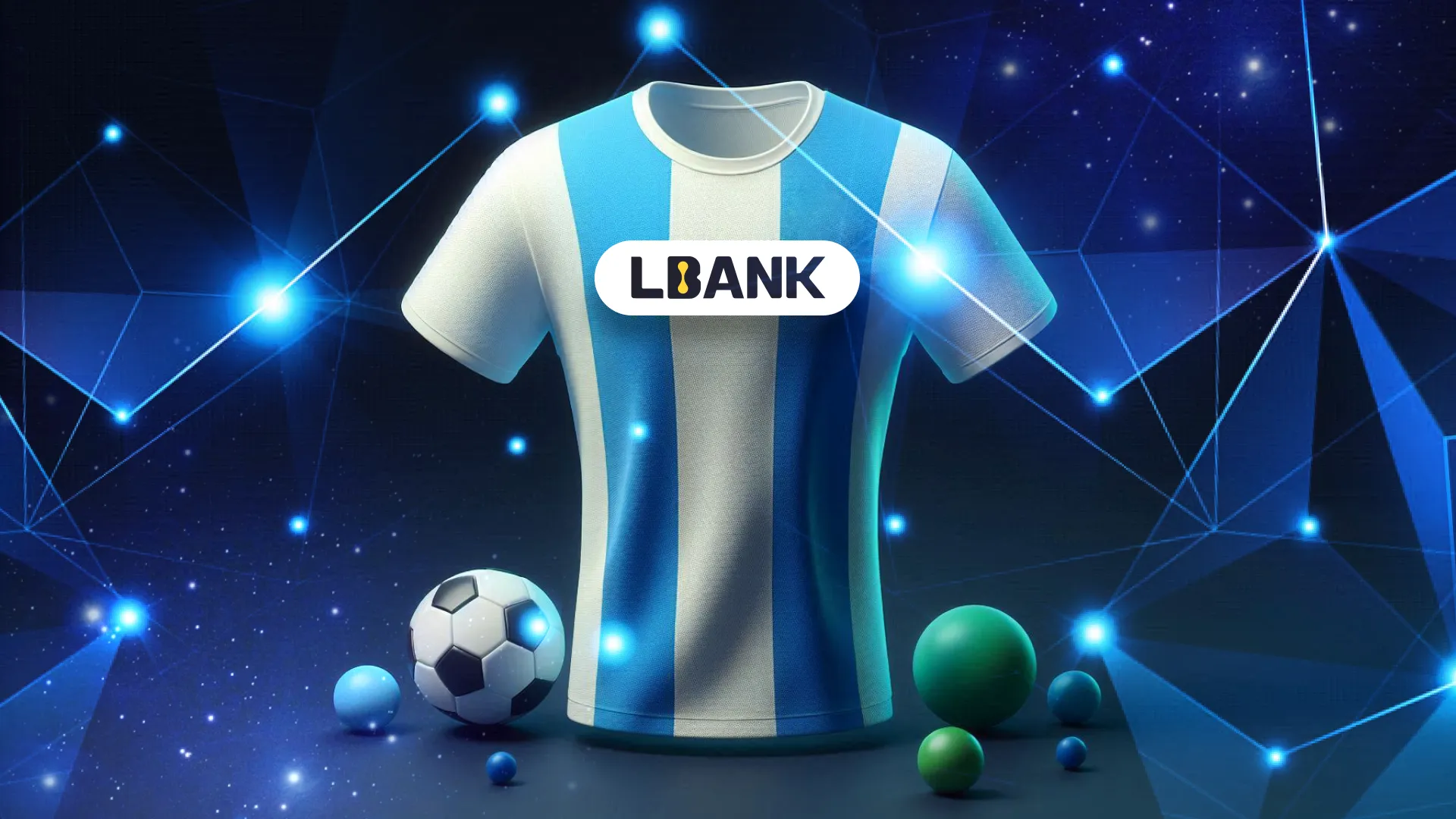
Fresh Month, Fresh Moves 🌙✨
Welcome to a brand-new month in crypto and AI—the kind where markets reset, projects drop big news, and regulators never seem to take a holiday 🗓️. If last month taught us that anything can happen (from unicorns trotting in to Poland dropping a 118-page regulation bomb 💣), this one is already shaping up to be just as wild.
We’re kicking things off with banks jumping head-first into blockchain, stablecoins fighting for the spotlight, and AI popping up in places you’d least expect—like your job interview or your playlist 🎶. Think of it as the perfect storm where money, code, and creativity collide. Buckle up—October is here, and it’s not coming quietly. 🚀

Lamina1 has joined forces with Linea to bring creator-owned media directly onto Ethereum, giving artists and storytellers more control over their digital worlds 🌍. The idea is to let creators publish, share, and even monetize their works without middlemen standing in the way.
By connecting Lamina1’s vision of the “Open Metaverse” with Linea’s scaling tech, the partnership hopes to make blockchain media smoother, faster, and more fun 😎. This could mean everything from indie films to interactive art projects running on Ethereum rails. Whether it’s a blockbuster or a doodle, creators might finally own their work in full. 🎨✨
Qatar National Bank has decided it’s time to give old-school payments a techy glow-up by adopting JPMorgan’s blockchain platform, Kinexys ⚡. The move is all about making cross-border corporate payments faster, cheaper, and less of a headache.
QNB will be able to cut out some of the financial middle layers, which normally eat time and money. This is another sign that big traditional banks aren’t ignoring blockchain anymore—they’re quietly putting it to work 🏦. For companies moving millions across borders, this could be a game-changer. And yes, blockchain is starting to look pretty corporate chic. 💼✨
The world’s most famous bank-messaging network, Swift, is now experimenting with blockchain settlement thanks to Consensys 🧩. Instead of only handling “slow and steady” money wires, Swift wants to test if blockchain rails can zip transactions around the globe like a crypto Ferrari 🏎️.
The partnership aims to build a system that makes payments between banks faster, transparent, and more resilient. It’s also part of the bigger push to keep Swift relevant in a blockchain-hungry world. If it works, your future bank transfer may arrive before you even close the app 📱. Fast money, anyone? 💸
The U.S. SEC has just made a surprising move: declaring that DePIN (Decentralized Physical Infrastructure Network) tokens are basically out of their jurisdiction 🛑.
In plain English, the SEC said these tokens don’t count as securities under their rules. That’s a big sigh of relief for projects that build networks like decentralized storage, wireless, or compute power. It means DePIN builders can focus more on growth than on constant regulatory panic. The crypto crowd sees this as a rare win for innovation in the U.S. 🎉. Of course, the fine print still matters—but for now, DePIN tokens got the “you’re free to go” pass. 🕊️
After a fierce competition to win issuance rights, Hyperliquid’s new stablecoin has officially gone live 🎉. The bidding war was no small drama, as only a handful of players got to join the issuance party. Now the stablecoin is set to power trading and liquidity in the Hyperliquid ecosystem.
With demand for reliable digital dollars higher than ever, Hyperliquid is aiming to carve out its place in the stablecoin arena 🪙. Traders are watching closely to see how stable (and popular) this new coin will really be. Think of it as crypto’s version of a reality TV debut. 📺✨
Nine major European banks, including UniCredit and ING, have teamed up to test a euro stablecoin that plays nice with the EU’s new MiCA rules 🏦. The plan is to create a trusted digital euro that companies and customers can use without fear of legal gray zones. This move is also a response to the rapid rise of dollar-backed stablecoins, which dominate global markets.
By banding together, these banks want Europe to have its own answer to Tether or USDC, but with a regulatory bow on top 🎀. If successful, it could change how Europeans move money across borders. The EU might finally have a stablecoin that’s both compliant and competitive. 💪
Biotech company Predictive Oncology has stepped into crypto waters by supporting DePIN’s treasury through a partnership with Aethir and its ATH token 🧬. The collaboration is pitched as a way to merge AI-driven cancer research with decentralized computing networks. Aethir’s infrastructure offers scalable GPU power, which can speed up data crunching for complex oncology research.
For DePIN, it’s a strong use case beyond just crypto hype—this is science with a blockchain backbone. The project shows how decentralized infrastructure can find real-world purpose in medicine 🏥. Imagine AI doctors powered by decentralized servers—it’s not sci-fi anymore. 🌟
Poland’s parliament (Sejm) just gave a green light to a sweeping Crypto-Asset Market Act, sending it next to the Senate—with critics sounding alarms 🛎️. The new law forces every crypto service (exchanges, issuers, custodians) to get licensed by the KNF, and noncompliance could bring fines up to 10 million złoty or even prison time of up to two years.
Many in the crypto world call it the most restrictive regulation in the EU—after all, it’s 118 pages long, compared to just 5 pages of crypto law in Latvia and much slimmer versions in Germany or Czechia. The bill’s complexity and heavy rules are seen as overregulation that might strangle innovation or drive firms abroad. But supporters argue it’s needed to protect investors and align with EU’s MiCA rules. Now the ball’s in the Senate’s court—and eyes are on the President to see whether he’ll sign or veto this monster of a law. 📜
DeFi giant Aave has announced its next big step: Aave V4, and the community is buzzing 🐝. The upgrade promises a more modular design, better efficiency, and even smoother user experiences. One of the highlights is expected to be a new risk management system and cheaper transactions.
Aave V4 could also open the door for more advanced features like native stablecoin support or new governance tools. For DeFi enthusiasts, it’s like waiting for the next season of your favorite show 📺. If all goes well, borrowing and lending on Aave is about to get a serious glow-up. 💎
RedotPay has raised a whopping $47 million, pushing its valuation over the magical $1 billion mark 🎉. That makes it the latest fintech unicorn, riding the wave of crypto payments hype. The company’s focus is on building bridges between traditional finance and digital assets, making it easier for people to pay in crypto like it’s no big deal.
Investors clearly believe in that vision, given how competitive the payments market is. With this fresh cash, RedotPay plans to expand globally and refine its tech stack 🌍. One more unicorn trots onto the crypto stage—and this one is wearing a payments crown. 👑

Visa has launched a pilot that uses stablecoins like USDC and EURC for cross-border settlements, replacing the need for banks to pre-fund fiat accounts around the world 🌍. This means money can move instantly, even outside banking hours, with fewer costs and less hassle.
So far, Visa has processed hundreds of millions in volume this way, showing it’s not just theory. The goal is to free up liquidity for institutions while making international transfers as simple as sending an email ✉️. If it scales, stablecoins could quietly become the hidden engine of global finance. 💡
Crypto exchange Kraken has reportedly raised $500 million, giving it a shiny $15 billion valuation and sparking chatter about an upcoming IPO 📈. The fresh funding strengthens its balance sheet and positions it well for future growth.
Rumors suggest this could be the last private raise before the company heads for a public listing. Investors see the move as a sign of confidence in Kraken’s long-term strategy. If an IPO does happen, it would be one of the biggest milestones yet for the exchange world. 🦑
Binance has unveiled a new solution that lets traditional finance institutions offer crypto services without having to build the tech themselves 🔧.
Dubbed “Crypto-as-a-Service,” it packages custody, trading, and compliance tools into a ready-made offering. For banks and fintechs that want to dip into digital assets but avoid the messy backend, this could be a shortcut. Binance hopes the move will bridge the gap between crypto and mainstream finance. Think of it as renting a fully stocked crypto toolbox instead of buying one. 🧰
HSBC has announced progress in quantum computing, saying it achieved a milestone in risk modeling and financial calculations using new quantum algorithms 🧮. While details are still emerging, the bank insists the technology could eventually speed up tasks that currently take hours down to seconds.
If true, it could change how big banks manage trading, portfolios, and even fraud detection. For now, it’s more proof that finance giants are taking quantum seriously, not just as hype. The future of banking may involve qubits as much as spreadsheets. 🌀
A group of UK banks, including Barclays and HSBC, are teaming up with Quant to test tokenized sterling deposits under a new pilot by UK Finance 💡. The idea is to digitize bank money into blockchain tokens that can settle instantly, similar to stablecoins but fully regulated.
This could make interbank payments faster and cheaper while keeping trust in the system. It’s also a nod to the growing momentum around tokenized deposits worldwide. London may soon be a hub where pounds move at blockchain speed. ⚡
In a surprising twist, Google has acquired a 5.4% stake in Cipher Mining, a U.S. Bitcoin mining company. The deal ties into Google’s broader push into AI and high-performance computing, with Cipher’s infrastructure seen as a fit.
For the crypto space, it’s a rare moment when a tech titan directly invests in mining. It signals that Bitcoin’s hardware backbone could also support future AI workloads. The line between “crypto rigs” and “AI servers” might be thinner than it looks. 🔌
Memecoin project Floki has launched the first major tournament in its metaverse game Valhalla, dangling a $150,000 prize pool 🎮. Players will compete in PvP battles, with top performers grabbing both cash and bragging rights. It’s part of Floki’s strategy to show it’s more than memes by pushing into gaming and Web3 entertainment.
The tournament is expected to draw attention from both Floki fans and curious gamers. Win or lose, it’s a chance to swing digital swords for real rewards. 🪙✨
Decentralized finance platform Spark has added PayPal’s stablecoin PYUSD as collateral in its lending markets 🔗. This lets users borrow against PYUSD or use it directly within the DeFi ecosystem.
It’s another big moment for PayPal’s coin, which is slowly seeping into crypto’s financial plumbing. For Spark, it’s a way to attract new liquidity and mainstream users. The line between fintech and DeFi just got a little blurrier. 🌐
The Polkadot community is weighing a proposal for an algorithmic stablecoin that would be backed by its native token, DOT 🪙. If approved, it could give Polkadot its own in-house stable asset for DeFi, payments, and beyond. The idea is to create stability while still tying value directly to the network.
Of course, algo-stablecoins come with baggage after the Terra collapse, so the plan is under heavy debate. Still, if done right, it could be a major unlock for Polkadot’s ecosystem. 🚀
Coinbase has backed a $14.6 million seed round for Bastion, a startup building infrastructure for stablecoins. The company wants to create safer, more transparent systems for issuing and managing digital dollars.
With Coinbase’s support, Bastion hopes to scale fast and attract institutional interest. Stablecoins are now one of crypto’s biggest growth markets, so new infrastructure players are in high demand. For Bastion, this raise is a powerful first step. 🌟
Cypherock has partnered with Changelly to roll out crypto swaps directly inside Cypherock’s hardware wallet. That means users can trade tokens without ever exposing their private keys, keeping funds in cold storage at all times ❄️.
The integration aims to combine Changelly’s fast swap engine with Cypherock’s self-custody security. It’s designed for people who want convenience without sacrificing control. In short: safer swaps, no middlemen, and fewer sleepless nights. 😎

LBank has scored a sponsorship deal with the Argentine National Football Team as a regional partner. The exchange will get branding rights and visibility with one of the most celebrated squads in football. For Argentina, fresh off World Cup glory, it’s another way to merge sports with crypto culture 🏆.
For LBank, it’s a marketing play that taps into the passionate fan base across Latin America. Crypto logos on jerseys? Maybe not yet—but partnerships like this keep pushing it closer. 👟
Bitcoin miner TeraWulf is seeking a massive $3 billion in financing to expand its data centers, with Google reportedly stepping in as a key backer. About $1.4 billion could come through Google’s support, giving credibility to the deal.
The company plans to use the funds not just for mining, but also for powering AI and high-performance computing projects 🤖. This crossover makes mining farms look less like “crypto-only” operations and more like energy-hungry digital factories. If it works, TeraWulf could become a poster child for the AI-meets-crypto trend. ⚡
Chainlink has announced an integration with Canton Network, a blockchain aimed at financial institutions and capital markets. The move will allow Canton to tap into Chainlink’s oracle services for real-world data feeds 📊.
This means smoother connections between traditional finance systems and blockchain smart contracts. Canton already counts giants like Deloitte and S&P among its participants, so the partnership could boost adoption in institutional circles. It’s another step in making blockchains more useful in serious money markets. 🏦
South Korea’s Naver Financial is reportedly considering acquiring Dunamu, the company behind the giant exchange Upbit. The talks also touch on launching a stablecoin, which would put Naver right in the middle of Korea’s crypto-fintech race.
With Kakao and other tech firms also expanding into digital finance, the rivalry is heating up 🔥. For Upbit, a partnership or acquisition could supercharge its ecosystem with Naver’s reach. If successful, South Korea could soon see a new wave of stablecoin-powered services. 🇰🇷
Crypto exchange Bitrue has expanded its “Earn” product, adding support for a wider range of assets. Users can now stake or lock up more tokens to earn passive income. The expansion is aimed at diversifying options for investors who want steady yields in a volatile market.
Bitrue says the program balances flexibility with competitive returns 💰. For everyday users, it means more ways to make their coins work while they sleep. 💤
China has opened a digital yuan hub in Shanghai, designed to promote blockchain services and central bank digital currency adoption. The hub will focus on payments, cross-border pilots, and fintech infrastructure. It’s part of Beijing’s strategy to make the e-CNY more mainstream, especially in trade-heavy cities like Shanghai 📦.
The initiative also signals China’s intent to lead in state-backed digital currencies. For locals, it could soon mean e-CNY apps everywhere—from metro rides to shopping malls. 🛒
VerifiedX has partnered with Crypto.com to integrate smooth crypto payments and on/off ramps into its Switchblade wallets. The collaboration will make it easier for users to top up or cash out directly with crypto.
The wallets are aimed at VFX and creative industries, so the partnership adds a financial layer for global freelancers and artists 🎨. For Crypto.com, it’s another step into niche ecosystems where digital payments can thrive. Seamless crypto-fiat flow is the goal. 🔄
Kazakhstan has launched a state-backed crypto fund and named Binance as one of its first partners. The fund is designed to foster blockchain innovation and attract global investment.
By teaming with Binance, Kazakhstan hopes to strengthen its position as a regional crypto hub 🌍. The initiative also fits into the country’s broader digital finance ambitions, especially around mining and fintech. With state support and Binance’s reach, the fund could become a heavyweight in Central Asia’s crypto scene. 🏔️
Gofaizen & Sherle just wrapped up its first year in El Salvador, and it’s been a busy 12 months 🎉. The firm helped clients snag 6 Digital Asset Service Provider (DASP) licenses, which is about 10% of all approved DASPs in the country — not bad when the regulator’s acceptance rate is only ~16%. It also aided in getting around 40 Bitcoin Service Provider licenses, boosting the legal crypto footprint in the nation.
Their local team of eight is juggling global legal know-how with Salvadoran compliance flair to smooth out rough regulatory roads. As EU rules tighten, the company argues Latin America — especially El Salvador — is emerging as a more welcoming terrain for crypto and fintech ventures.

Startup Alex closed a $17 million round to build an AI recruiter that can handle the early stages of job interviews. Instead of HR teams spending hours screening resumes and doing first calls, Alex’s AI can chat, ask questions, and filter candidates. 🧑💻
The goal is to speed up hiring and reduce biases in the initial stages. Founders say it’ll let humans focus on judgment calls and culture fit rather than repetitive chores. Whether you love or hate talking to bots, recruiting might get a little more robotic. 🤖
A team spun out by former Microsoft executives is launching AI agents to replace Excel-heavy workflows in mid-sized enterprises. The agents aim to automate budgeting, forecasting, and financial reporting. Rather than every finance team building custom scripts, these AI agents could provide plug-and-play solutions. 🖱️
They pitch it as “zero-code” intelligence that sits between data, humans, and decisions. If it works, your Excel-spreadsheets legacy might finally face retirement. 💻
Cloudflare is reportedly developing a “net-dollar” stablecoin to power AI-driven payments inside its network. The idea is to let systems transact automatically—charging services, APIs, compute—immediately, without waiting for traditional settlement. 💹
This stablecoin could become the fuel behind a new digital financial machine: AI services paying each other. It also signals how infrastructure companies are getting more deeply into money. 💰
OpenAI has released ChatGPT Pulse, a tool designed to assist crypto traders with sentiment, news flows, and market signals. Rather than purely giving chat responses, Pulse offers quick updates and trend insights tied to digital assets.
It aims to make ChatGPT more useful for people watching fast-moving markets—all while maintaining safety guardrails. For crypto fans, it’s a feature that brings trading and AI under one roof.
Nansen AI introduced a new platform billed as the “first agentic trading platform” for on-chain investors. It allows users to build or adopt AI agents that monitor blockchain activity, trigger trades, and manage positions autonomously.
Think of it as combining smart contracts with smart agents—less manual trading, more reactive strategies. For pros watching many chains, this could simplify the juggling act.
Circle is teaming up with Crossmint to boost how USDC can be used by both people and AI systems. The partnership aims to make it easier for apps, bots, or services to mint, move, and manage USDC in real time.
They see the future where not just people, but machines, cash in on stablecoins. It’s another step in embedding digital dollars into software.
Opera is debuting a new browser called Neon, built with AI features at its core. Neon aims to integrate generative tools, smart indexing, and predictive navigation. Instead of being a passive tab container, it will try to assist, recommend, and adapt.
Opera sees the browser as more than a display—an active companion in your digital life.
Dev tool startup Anything pulled off a rare feat: hitting $2 million in ARR in its first two weeks, and now raising money at a $100 million valuation. Its pitch: let non-coders—or faster coders—build software using intuitive, AI-assisted workflows.
It’s part of the “no-code meets AI” boom. The speed is wild, but investors clearly believe in making development easier for all.
YouTube Music is experimenting with AI hosts that can narrate segments, share trivia, or comment on songs during listening sessions. Imagine listening to a playlist while an AI “DJ” drops fun facts or jokes between tracks. 🎧
It’s part of making audio more interactive, more personalized, and less static. Whether you think it’s cool or creepy, AI voices may be your next musical companion. 🔊
Startup JuiceBox secured $30 million from Sequoia to reimagine recruitment using large language models. Instead of sifting through resumes, their tool lets companies ask questions like “Find me engineers who built X in Y domain,” and get ranked candidates.
They aim to speed up hiring, reduce bias, and surface hidden talent. If talent search was a puzzle, JuiceBox hopes to solve it with AI. 🧠
Stephen Curry’s venture firm has invested in an AI startup that wants to optimize food supply chains. ✅ 💱
The company uses machine learning to predict demand, reduce waste, and streamline logistics. In a world facing climate pressure and logistics chaos, smarter food systems could make a big impact. Plus, you can now say “Steph Curry backed the future of your dinner.”
If this week proved anything, it’s that crypto doesn’t just live in the charts—it’s spilling into banks, sports, medicine, browsers, and even your playlist 🎶. From Poland’s 118-page regulation saga to Visa’s stablecoin experiments, the ecosystem is buzzing with both challenges and opportunities.
And with AI increasingly tagging along for the ride, the next big disruption might just come from a bot 🤖. That’s it for this edition of Crypto Weekly Digest—stay curious, stay secure, and don’t forget: in crypto and AI, the only constant is change. See you next week! 🌍✨
